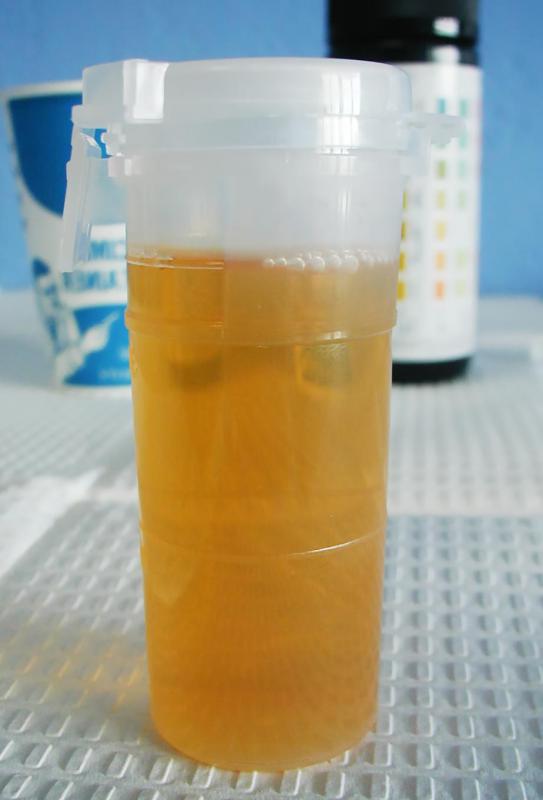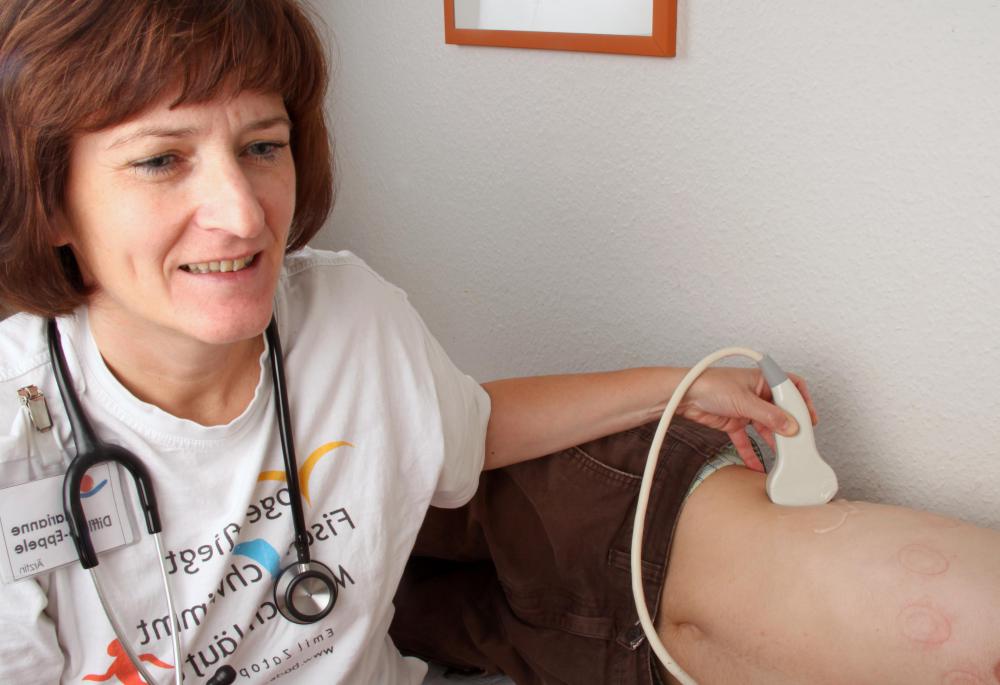At TheHealthBoard, we're committed to delivering accurate, trustworthy information. Our expert-authored content is rigorously fact-checked and sourced from credible authorities. Discover how we uphold the highest standards in providing you with reliable knowledge.
What are Kidney Lesions?
Kidney lesions are areas of anomalous tissue in or on the kidneys. Lesions can be a cause for concern in some patients depending on their cause and precise location, along with how fast they grow. Some people have lesions on their kidneys and are unaware of it, while others may develop symptoms such as bloody urine, back pain, and kidney obstruction as a result of impairments in renal function caused by the lesion or lesions.
A number of different things can cause a lesion. Lesions are injuries which are characterized by the presence of tissue which does not belong or which grows abnormally. Cancers can cause lesions as can infections and trauma. Like other lesions, kidney lesions are classified as either benign or malignant. A malignant lesion is cancerous and requires treatment. A benign lesion is not cancerous, but may still cause medical complications which lead to treatment.

One reason to develop kidney lesions is because of kidney cancer, in which case a mass may be visible in the kidneys if a patient is given an ultrasound. Another reason can be chronic infections which lead to scarring and damage. This in turn can obstruct the drainage from the kidneys or interfere with kidney function in other ways. Scarring can also be caused by surgery, inflammation, and other processes which involve the kidneys.

In most cases, kidney lesions are diagnosed because a patient begins to experience symptoms and is evaluated by a doctor. Evaluation can include urinalysis to learn more about how well the kidneys are functioning as well as ultrasound, other imaging studies, and biopsy of the kidneys to take a sample of the kidney tissue. Identifying the cause of a lesion is important for determining a course of treatment, and for finding out whether or not treatment should be pursued at all. For some types of lesions, a doctor may recommend a wait and see and approach in which the lesions are monitored, but not treated.

Treatment options for kidney lesions vary, depending on why they have formed. Treatments can include surgery, chemotherapy, radiation, medications, or hemodialysis to replace failing or damaged kidneys. In some cases it may be necessary to remove the kidneys altogether, in which case the patient will require a transplant of at least one working kidney from a donor. Because people can survive with one kidney, sometimes it is possible to find someone who is willing to be a living donor to provide a kidney to someone who is in immediate need of one.
AS FEATURED ON:
AS FEATURED ON:


















Discussion Comments
What about a 3.8 cyst within the upper left kidney (mild bilateral lower lobe at electadis)?
And it could be nothing serious at all? Why post the worst case scenario?
I had been having pain to the right of my spine, sort of under my rib. My doctor ordered an MRI and it said: "Stable T2 hyperintense lesion in the right kidney." Is that a cause for concern?
A week ago, I was eating and started feeling bloated. It lasted through the week but I wasn't having any other symptoms, just fullness in belly and burping. It got worse through the week and I was down 11 pounds total in eight days from not wanting to eat. I didn't have bowel trouble or anything else.
I have now been to the doctor twice, my blood work looks great and Pepcid helped my belly. I'm thinking ulcer, but now, my result showed a lesion on my kidney and I have a CT scheduled for tomorrow. There's nothing else wrong, belly and surrounding looked good on ultrasound, no back pain, urine is good, nothing.
Now I'm freaking out because I used to take Tylenol daily and have heard this could be the cause. Any info will be useful. I just need to know what to look for and if I should be scared.
A CT found lesions on my left kidney. They are doing an ultra sound but from all I've read it worries me. I have the extreme fatigue, the back and abdomen pain is terrible, the weight loss (obese all my life), the loss of appetite and the blood in the urine. It makes me wonder what the ultrasound will find. I thought no pain meant cancer. What if you are in terrible pain? Could it still be cancer?
My severe back pain has ended and I feel well, certainly no weight loss and my regular urine samples have been fine. I had glomerneophritus 20 years ago.
Are there any medicines that I can use for kidney lesions?
My mom has been having issues with her kidneys for about two years now, and her symptoms are exactly like kidney lesions. All her tests came back negative, including the ultrasounds which we haven't been able to get hold of. What are some suggestions that we can do because she is about to give up and not do a thing. Help!
what size cyst is considered large and how are they rated? I have a 5.4cm cyst on my kidney. I am wondering if I need to get it checked out further.
I recently went to the doctor because I hurt my back. From the back x ray, i went for an ultra sound and then a CT scan of my kidneys because of "kidney lesions" 3.7cm and 1.? cm - I haven't had any issues.. I had the CT scan today.. But am ready for some info. How can I have something wrong with no symptoms? Des that mean cancer?
Originally I was told "a cluster of blood cells" - and sadly on the same day, my mom had a biopsy as she may have breast cancer for the second time.
any thoughts on the kidney lesions?
I, after reading this am very concerned. I have had issues with my bladder/kidney that's been known for the past year. I have had countless UTIs and I found a ER release where I had a CT scan stating that I have multiple low density lesions on my left kidney. To this very day I suffer tremendous flank pain.
@yournamehere -- Well, unfortunately kidney lesions rarely cause symptoms until they're big enough to be serious -- that's why the kidney cancer statistics are so grim.
However, there are some slightly earlier symptoms, including fatigue, weight loss, and intermittent fevers in addition to the bloody urine and back pain.
Besides bloody urine and back pain, what are some of the other symptoms of kidney lesions?
I'm researching kidney cancer symptoms because my family has a history of it, and wanted to learn about the symptoms of kidney lesions, since they are often connected with cancer.
One of the most common causes of kidney lesions is renal cell carcinoma.
It usually shows up as a kidney cyst or lesion in the beginning, but then develops into cancer.
Renal cell carcinoma is considered one of the most deadly cancers that can attack the urinary system. This is partially because it occurs in the tiny tubes within the kidney, making it hard to catch early.
Renal cell carcinoma treatments are usually limited to a partial or radical nephrectomy, as it is not easily affected by either radiation or chemotherapy.
Post your comments